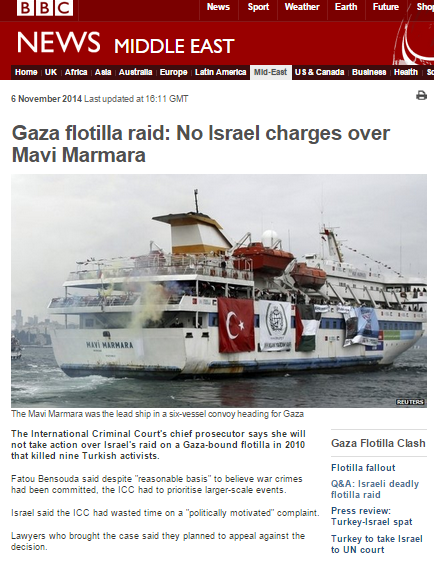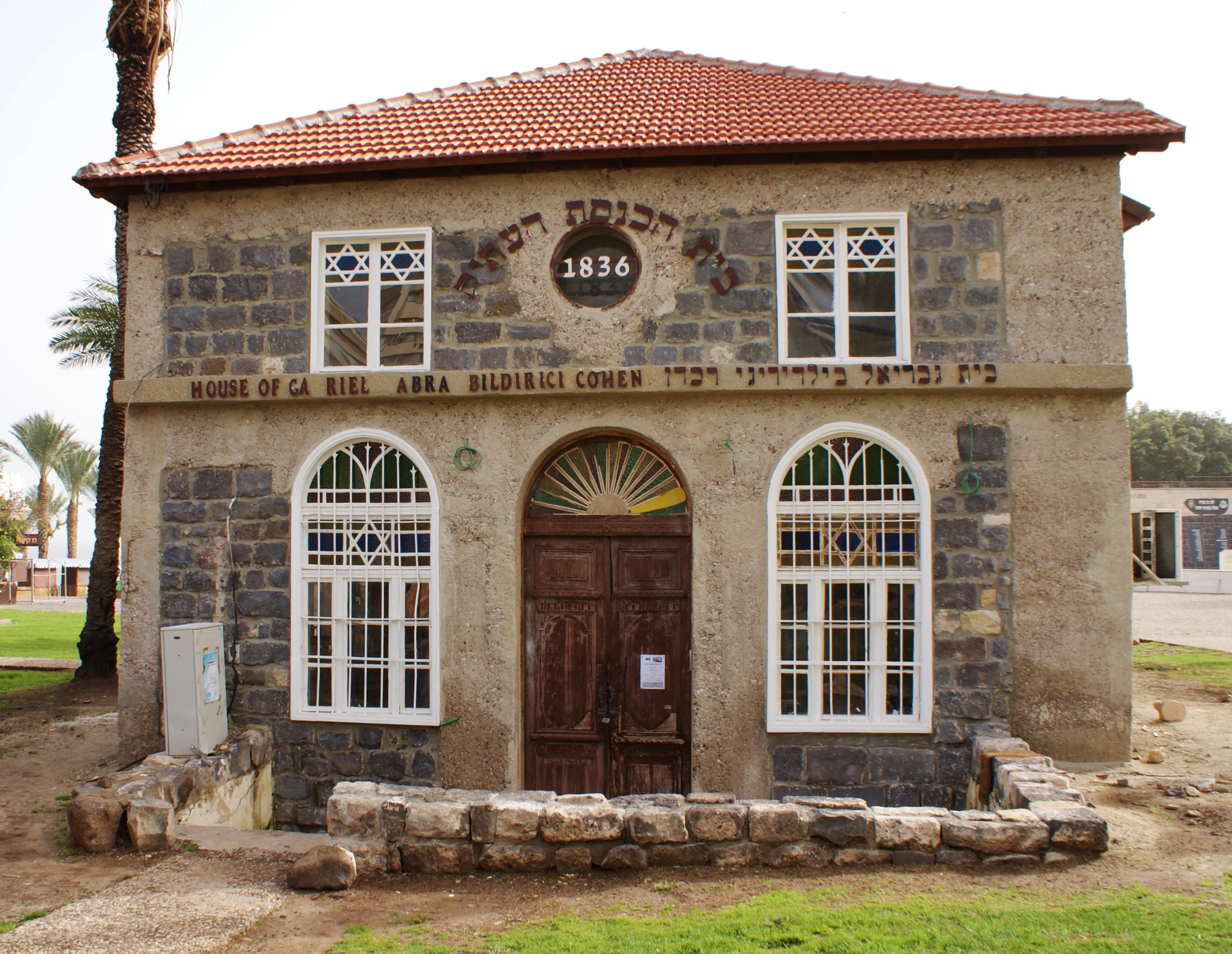The BBC’s editorial guidelines on impartiality include the following clauses:
“4.4.12
News in whatever form must be treated with due impartiality, giving due weight to events, opinion and main strands of argument. The approach and tone of news stories must always reflect our editorial values, including our commitment to impartiality.
4.4.14
We should not automatically assume that contributors from other organisations (such as academics, journalists, researchers and representatives of charities) are unbiased and we may need to make it clear to the audience when contributors are associated with a particular viewpoint, if it is not apparent from their contribution or from the context in which their contribution is made.”
Two recent articles appearing in the Middle East section of the BBC News website highlight the problematic widespread phenomenon of BBC reports based upon information sourced from political NGOs working in Israel.
A May 7th article entitled “Israel PM Netanyahu ‘curbs settlement construction’” devotes five out of 16 paragraphs to promoting the position of the foreign-funded political NGO ‘Peace Now’ (Shalom Achshav).
“Israel’s prime minister has issued an unofficial order to stop the approval of new plans or tenders for Jewish settlement construction in the West Bank, a leading pressure group says.
Peace Now said it appeared Benjamin Netanyahu was responding to US efforts to restart Middle East peace talks.” […]
“Peace Now said it appeared Mr Netanyahu had “adopted a policy of restraint, possibly to avoid being blamed for undermining Secretary of State John Kerry’s efforts to launch a new Israeli-Palestinian political process”.
However, Hagit Ofran, the director of Peace Now’s Settlement Watch project, noted: “This is not a freeze.”
Settlement construction was still taking place at numerous sites, sanctioned by plans and tenders that were approved before Mr Obama’s visit, he said.”
Seeing as Hagit Ofran is female, one has to wonder if that last sentence above indicates that whoever wrote this BBC article just reproduced a ‘Peace Now’ press release.
The BBC article also includes two paragraphs relating to a Palestinian Authority statement on the subject and four paragraphs of second-hand reactions by the Israeli Housing minister and the Yesha Council – both cribbed from other media sources.
The report states:
“Direct negotiations with the Palestinians stalled in 2010 following a dispute over settlement construction.”
This is far from the first time that the BBC has misrepresented the events of 2009/10 when a ten-month long construction freeze initiated by the Israeli government as an incentive to restart peace negotiations was ignored by the Palestinian Authority for 90% of its duration and its culmination used by that body as a pretext to discontinue talks.
The article continues:
“About 500,000 Jews live in more than 100 settlements built since Israel’s 1967 occupation of the West Bank and East Jerusalem. The settlements are considered illegal under international law, though Israel disputes this.”
Yet again we see the BBC’s adoption and promotion of a very partial and political interpretation of “international law” which in no way reflects the variety of legal opinion (by no means only Israeli) on the subject and fails to provide the necessary resources for BBC audiences to form their own opinions on the issue.
Those same two dumbed down mantras are repeated in another BBC article by Yolande Knell published two days later on May 9th and titled “Israel approves almost 300 new West Bank settler homes“.
“Direct talks with the Palestinians stalled in 2010 following a dispute over settlements.
All settlements in the West Bank, including East Jerusalem, are considered illegal under international law, although Israel disputes this.”
Knell also devotes four paragraphs of her article to the promotion of the point of view of ‘Peace Now’.
“The Israeli pressure group, Peace Now, confirmed that no tenders had been issued for new settler homes in recent months. A leading settler body, the Yesha Council, confirmed this.
Peace Now said the latest announcement was a blow to peace.
“There was a possible sign of restraint but this new plan makes it clear there is no freeze in construction,” says Melanie Robbins from the organisation.
“In fact the decision to promote this building in Beit El is extremely problematic. It will lead to a 33% growth in the settlement.” “
Interestingly, Knell describes the proposed location of construction – Beit El – in the following terms: 
“Beit El is an isolated settlement close to the Palestinian city of Ramallah, the administrative capital for the Palestinian Authority.”
Beit El is situated 29 kilometers (18 miles) from the city centre of Israel’s capital Jerusalem – closer than Bushey or Watford to central London – and so Knell’s employment of the word “isolated” is notable, especially as we find it used in a ‘Peace Now’ press release relating to the subject of Knell’s article and published on the same day. [emphasis added]
“Peace Now: “It seems that Netayahu is deceiving the public by claiming to have restrained the construction in settlements. The reported pause in publication of new tenders is halting only a small part of the construction in settlements, while the construction on the ground continues, and the initiation of new plans, even in isolated settlements, continues.”
The plan: many units in an isolated settlement
The settlement of Beit El is located very close to Ramallah, in an area that will not be annexed to Israel under any future peace agreement.”
In the interests of its obligations to impartiality, any BBC article based upon press releases from politically motivated NGOs should make that fact clear to readers. In addition, the BBC’s habitual failure to provide its audiences with fully transparent information regarding the positions, motivations and funding of such NGOs severely compromises its reputation for impartiality by contravening the guidelines noted above and entrenching the impression that the BBC is knowingly acting as a promoter and amplifier of selected political campaigns.
That impression is further strengthened by its failure to report on construction plans in Judea and Samaria destined for Palestinian residents – such as the recently publicised project near Jericho.
“The Civil Administration of Judea and Samaria has deposited a plan for a large project of 1,140 Palestinian homes on Israeli state land in Area C of the West Bank near the city of Jericho.
The project, on 1,800 dunams of land, would provide a legal housing solution for Palestinians in that area living in illegal homes and unauthorized villages that are not properly connected to utilities, according to the civil administration.”
A BBC report on that particular proposed ‘settlement’ has yet to appear.




